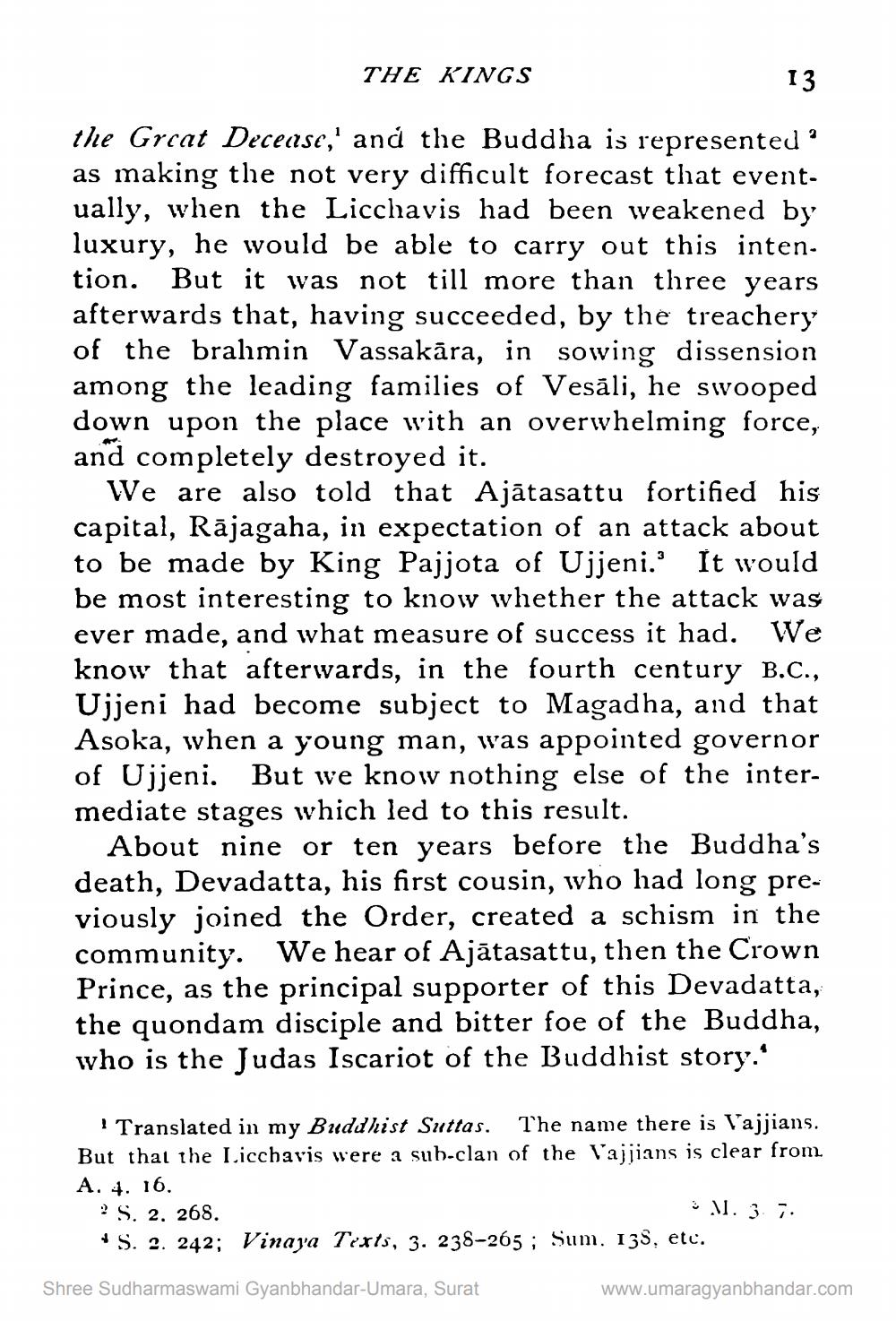________________
THE KINGS
13
the Great Decease,' and the Buddha is represented ? as making the not very difficult forecast that event. ually, when the Licchavis had been weakened by luxury, he would be able to carry out this intention. But it was not till more than three years afterwards that, having succeeded, by the treachery of the brahmin Vassakāra, in sowing dissension among the leading families of Vesāli, he swooped down upon the place with an overwhelming force, and completely destroyed it.
We are also told that Ajātasattu fortified his capital, Rājagaha, in expectation of an attack about to be made by King Pajjota of Ujjeni.' It would be most interesting to know whether the attack was ever made, and what measure of success it had. We know that afterwards, in the fourth century B.C., Ujjeni had become subject to Magadha, and that Asoka, when a young man, was appointed governor of Ujjeni. But we know nothing else of the intermediate stages which led to this result.
About nine or ten years before the Buddha's death, Devadatta, his first cousin, who had long previously joined the Order, created a schism in the community. We hear of Ajātasattu, then the Crown Prince, as the principal supporter of this Devadatta, the quondam disciple and bitter foe of the Buddha, who is the Judas Iscariot of the Buddhist story.'
"Translated in my Buddhist Suttas. The name there is Vajjians. But that the Licchavis were a sub-clan of the Vajjians is clear from A. 4. 16. ? S. 2. 268.
31. 3 ;. S. 2. 242; Vinaya Texts, 3. 238-265; Sum. 135, etc.
Shree Sudharmaswami Gyanbhandar-Umara, Surat
www.umaragyanbhandar.com




